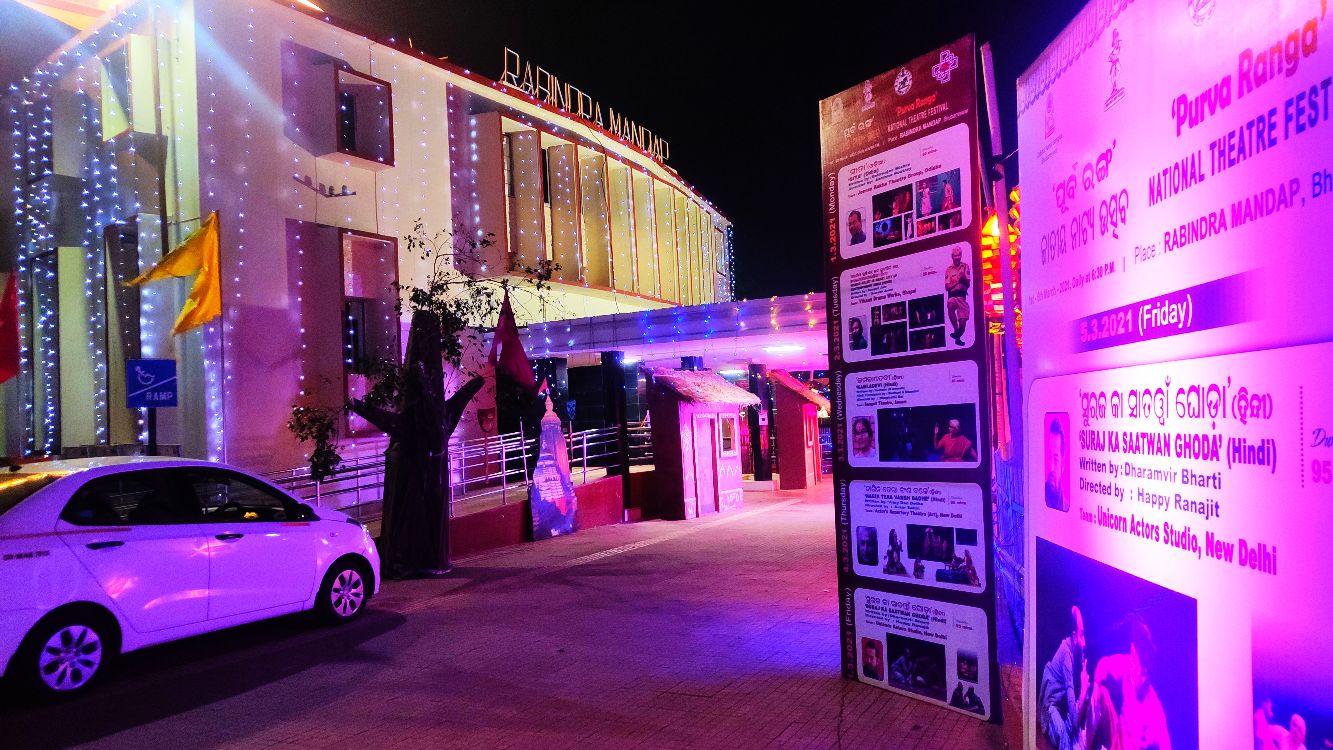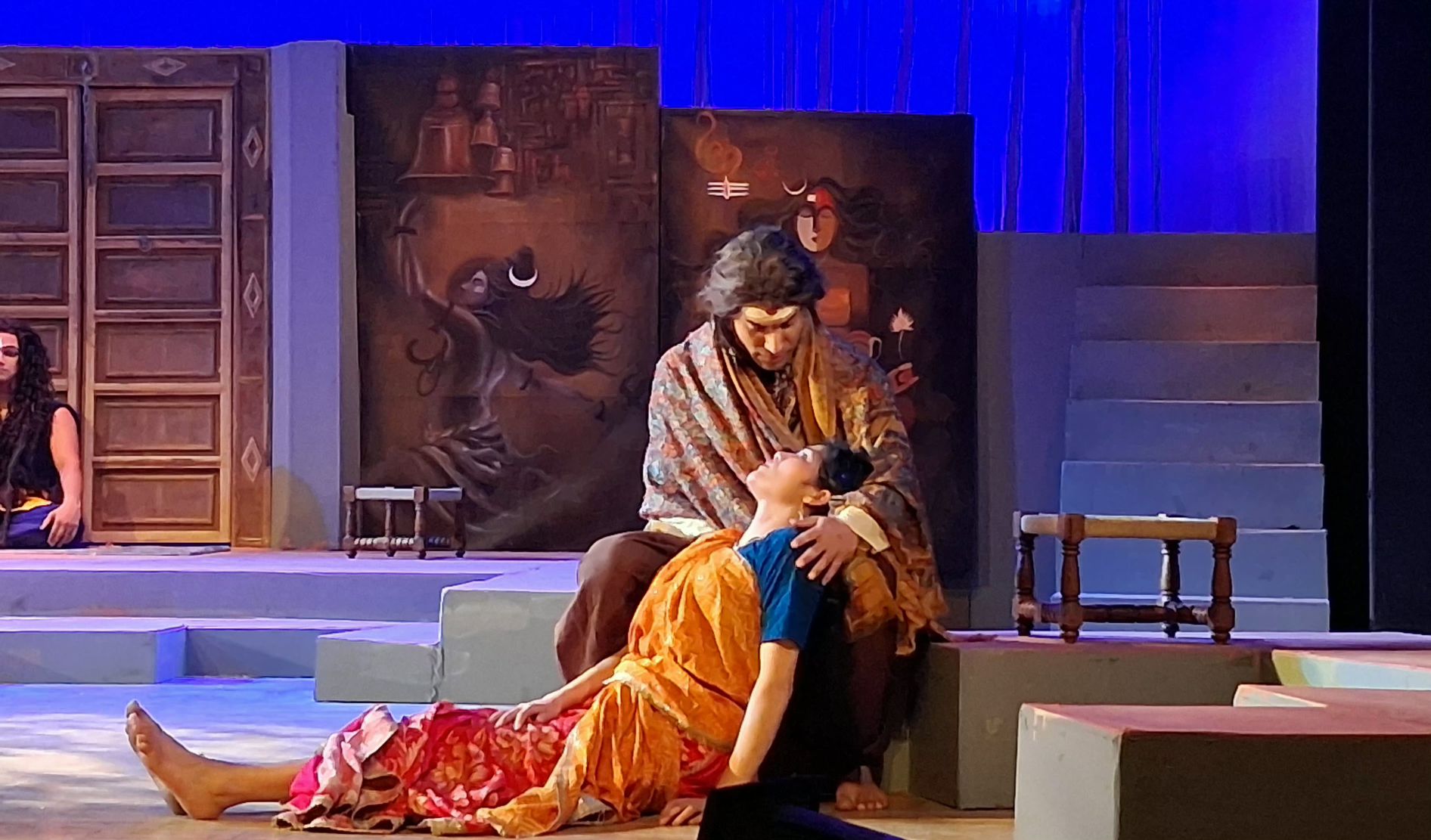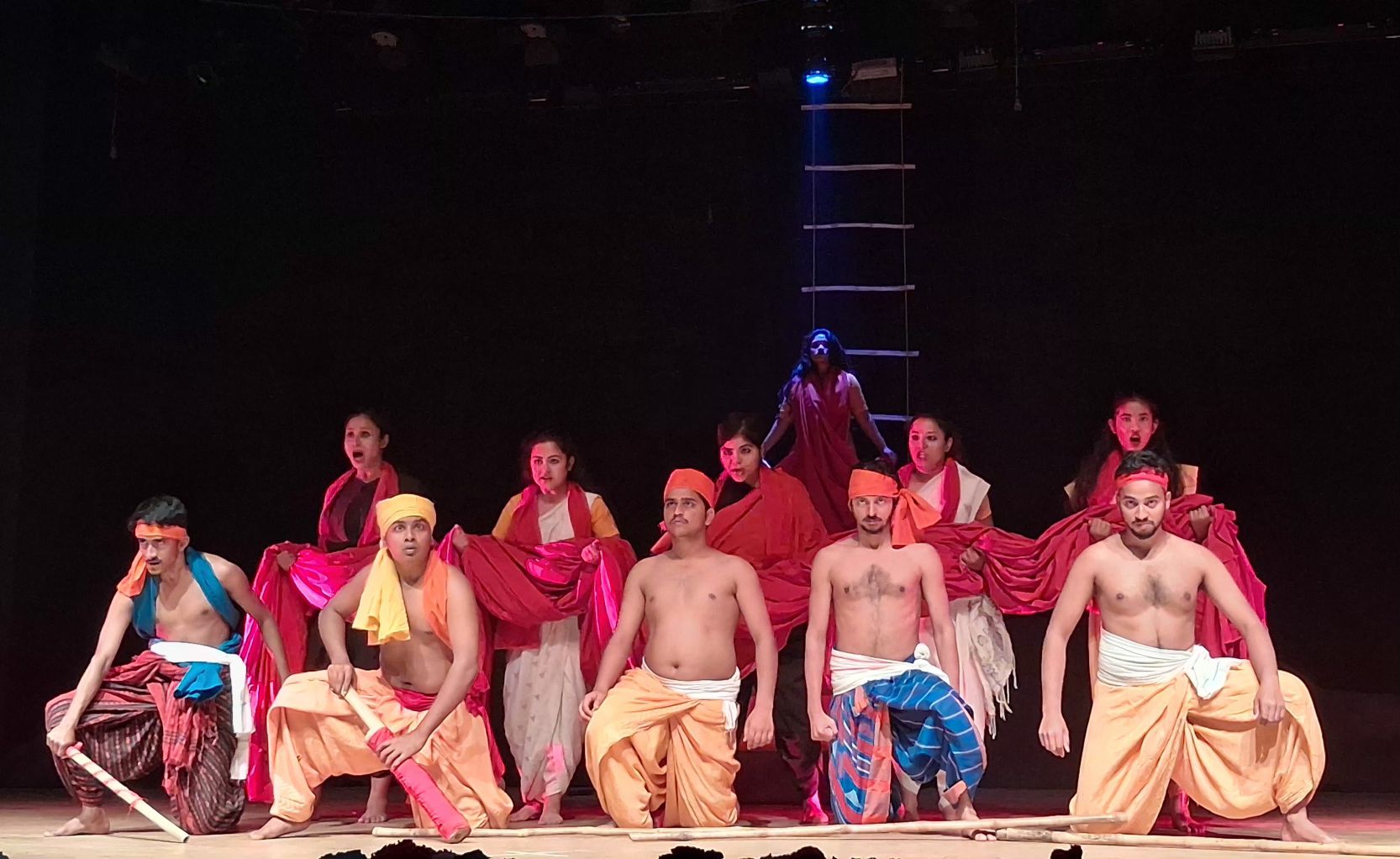Bhubaneswar: Five-day ‘Purva Ranga’National Theatre Festival organised by Department of Odia Language, Literature and Culture and Odisha Sangeet Natak Akademi, in collaboration with Eastern Zonal Cultural Centre and in association with Odisha Natya Sangha at Rabindra Mandap here came to an end on March 5.
The theatre festival was the first such festival organised by the Department of Odia Language, Literature and Culture after pandemic. The organisers did not let any stone unturned to make it a big success. Starting from decorating Rabindra Mandap to holding programmes like ‘Dinner with Directors’, everything was perfect.
All the five plays were appreciated by the audience. For this, the entire credit again goes to the organisers who took great care in selecting groups and plays.
But, the organisers forgot to remember those theatre personalities who have departed since the outbreak of the pandemic.
From last year till now, we have lost many theatre personalities-Ajit Das, Bijay Mohanty, Bijay Mishra, Dhiren Rout, Soudamini Pati, Kunja Ray to name a few. The inaugural evening was attended by government officials and crème de la crème of the theatre world. Even the present secretary of Odisha Sangeet Natak Akademi is himself a theatre personality.
This reviewer was surprised how could they forget those departed theatre personalities.
Had the organisers observed a one-minute silent prayer for the departed souls, the festival would have been a complete success.
The inaugural play was’SEETA’, staged by Jeevan Rekha, a Bhubaneswar based theatre group. While the play is written by Rati Ranjan Mishra, it was directed by dynamic Abhinna Routray, who is known for experiments.
The play revolves around four friends-a king’s son, a minister’s son, a katwal’s son and a carpenter’s son-and a girl.
As the play sets in ancient times, the parents of four friends get their children admitted in a gurukul. When they complete their education, they grow into four handsome youths.
Following the order of their guru, they all the four leave the gurukul to collect experience. While passing through a forest, they decide to spend the night in the forest. They also decide it that each one of them will remain awake in each part of the night. They divide the four parts of the night among them.
In the first part of the night, the carpenter’s son is awake. He meets someone who asks him to test his friends’ loyalties. The carpenter’s son chisel out a fairy like girl’s figure out of a log. His period expires. And the rest three friends come one after another in their pre allotted parts of the night and do their shares and the wooden figure gets life.
Once bosom friends, they start fighting to marry the girl. Then they take the case to a king’s court. Instead of deciding the case, the king gets bowled over by her charm. He puts the friends in prison and decides to marry her. However, the quartet kills the king. But none of them can get the fairy girl as she returns to her previous shape, a log piece.
The message the play carries is loud and clear- a woman is not a material. She is the embodiment of love and relationship. She takes pain to shape the society.
Director Abhinna Routray’s homework was noticeable all throughout the play.
This reviewer finds the way the director presented the royal court as excellent. The courtiers enter holding two colourful sticks in each hand, announcing the entry of the king. Their entry reminds me of Ranapa dance. Ranapa dance is a folk dance form found in Ganjam district of Odisha. The dancers dance while standing on bamboo stilts. And then some courtiers enter dancing with holding receptacle earthen pots from where a fragrant smoke of sal resin is billowing. Actually it is still in practice in some tribal clans to purify with the smoke of sal resins. Then the king enters. Oh! The costume of the king and his followers is seen to be believed. Chhau dance steps are used here. In a nutshell, Odisha’s folk and tribal cultures are widely used throughout the play.
The actors did their best to give justice to their characters. Here I must mention one thing and that is all the female artistes cut their teeth on theatre acting by acting in this play. They are students, job holders and housewives. Dipanwit Dasmohapatra needs special mention here.
Banchhanidhi Patnaik’s make up, Sanjay Saha’s light design, Mama and Debendra Sundarata’s costume and last but not the least, Pratap Rout’s music played vital roles in making the play successful. All the tribal instruments are used to add value to the scenes. However, at one or two scenes, the music suddenly got louder, distracting the audience’ attention.
The second evening’s play ‘Romeo-Juliet in smart city of contemporary India’ in Hindi gave an engrossing viewing experience. The play was staged by Vihaan Drama Works, Bhopal, written by Swapnil Jain and directed by Sourabh Anant.

As the play proceeds, it shows how love couples are either forced to commit suicide or being lynched or murdered by their own family members for the sake of their families’ honour.
The way Sourabh Anant tells the story is excellent. Choice of artistes and costume design need special mention. The audience as well as this reviewer remained hooked to their seats till last scene.
Vihaan Drama Works was established in 2011 by Sourabh Anant.
Kamladevi (Kuch Yadon Ki Panne) was the play staged on the third evening of the festival. It reminds theatre connoisseurs of the ace social activist Padma Vibhusan awardee Kamala Devi Chattopadhyay’s vision for which institutions like National School of Drama and Kendra Sangeet Natak Akademi exist today. Based on her autobiography, originally written in Kannada by Vaidehi and translated into Hindi by Madhavi S Bhandari, the play is designed and directed by Bhagirathi Bai.
The play offers an opportunity to know freedom activist Kamala Devi Chattopadhyay from just few rows of seats away.
Bhagirathi Bai’s home work was visible in the play. Starting from her childhood days to her participating in India’s struggle for independence, all striking aspects of her life are portrayed so neatly that this reviewer felt for some time that he was in a time warp.
All the artistes did their best. And what to say about Birinchi Kumar Gogoi’s music. He was excellent in making the scenes more enjoyable.
On the penultimate evening, Actor’s Repertory Theatre (Art), a New Delhi based theatre group presented ‘Nagin Tera Vansh Badhe’.
An outcome of 50 days extensive workshop, ‘NTVB’ has all the ingredients to make for a fine viewing experience. Contrary to the common belief that a nagin swallows it’s own siblings, the play shows how a nagin sacrifices her love to fulfill others’ desires. At the end of the play, while coming out of the auditorium the people were ranking their heads for answers to the questions the play put to them. Why we always take those who take pains to give us comforts as granted? Who are we on the earth to look down on those who are deprived of something?
The play’s mainstay is its artistes’ acting.
Vijay Dan Detha’s original story was adapted for theatre by V.K. and directed by Avtar Sahni.
Born in Simla in 1958, Avtar Sahni graduated from National School of Drama in 1984 with specialization in direction.
NSD granted him fellowship for one year to work on ‘Interaction between traditional performing arts and modern theatre’ under the guidance of Ratan Thiam in Manipur. Among the awards and accolades, Sangeet Natak Akademi Award-2017 (in allied theatre arts- for contribution in stage light design), Chamanlal Memorial Award-2018 (excellence in theatre light design), Natya Guru Samman in 2017 by Sanskar Bharti, New Delhi and Best Director award by Nat Samrat Theatre Awards, New Delhi.
He set up his own theatre group Actor’s Repertory Theatre (ART) in 2004 and has so far directed about 45 plays.
On the concluding evening, Dharamvir Bharti’s novel ‘Suraj Ka Satwan Ghoda’ was presented in theatre format to a pack audience. It was staged by Unicorn Actors Studio, a New Delhi based theatre group.
In the play, seven short stories are presented like a bouquet of seven types of flowers. Happy Ranjit, born and brought up in Odisha and an NSDian, presents the play in such a way that audiences find themselves swaying in the flow of the play. Manik Mulla and his three lovers Jamuna, Lilly and Satti at different phases of his life leave the audience completely naked before mirror.
A Bismillah Khan Yuva Puraskar recipient, Happy Ranjit established his theatre group ‘Unicorn Actors Studio’ in 2010.
By kalasanskruti




